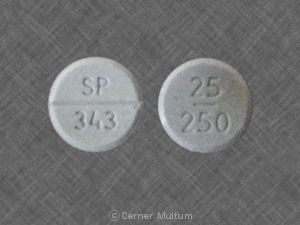Parcopa Interactions
There are 523 drugs known to interact with Parcopa (carbidopa/levodopa), along with 13 disease interactions, and 1 alcohol/food interaction. Of the total drug interactions, 50 are major, 462 are moderate, and 11 are minor.
- View all 523 medications that may interact with Parcopa
- View Parcopa alcohol/food interactions (1)
- View Parcopa disease interactions (13)
Most frequently checked interactions
View interaction reports for Parcopa (carbidopa / levodopa) and the medicines listed below.
- Accupril (quinapril)
- albuterol
- amantadine
- anastrozole
- aspirin
- atorvastatin
- Azilect (rasagiline)
- Celebrex (celecoxib)
- clonazepam
- Comtan (entacapone)
- Crestor (rosuvastatin)
- gabapentin
- Lexapro (escitalopram)
- Lipitor (atorvastatin)
- lisinopril
- MiraLAX (polyethylene glycol 3350)
- Mirapex (pramipexole)
- Namenda (memantine)
- Neupro (rotigotine)
- Nexium (esomeprazole)
- Norvasc (amlodipine)
- pramipexole
- Requip (ropinirole)
- ropinirole
- Seroquel (quetiapine)
- tramadol
- trazodone
- Tylenol (acetaminophen)
- Vitamin D3 (cholecalciferol)
- Xanax (alprazolam)
Parcopa alcohol/food interactions
There is 1 alcohol/food interaction with Parcopa (carbidopa / levodopa).
Parcopa disease interactions
There are 13 disease interactions with Parcopa (carbidopa / levodopa) which include:
- glaucoma
- cardiac disease
- neuroleptic malignant syndrome
- psychoses/depression
- glaucoma
- liver/renal
- melanoma
- reactive airway disease
- depression
- sleep disorders
- hypotension
- psychosis
- GI bleeding
More about Parcopa (carbidopa / levodopa)
- Parcopa consumer information
- Compare alternatives
- Drug images
- Side effects
- Dosage information
- During pregnancy
- Drug class: dopaminergic antiparkinsonism agents
Related treatment guides
Drug Interaction Classification
| Highly clinically significant. Avoid combinations; the risk of the interaction outweighs the benefit. | |
| Moderately clinically significant. Usually avoid combinations; use it only under special circumstances. | |
| Minimally clinically significant. Minimize risk; assess risk and consider an alternative drug, take steps to circumvent the interaction risk and/or institute a monitoring plan. | |
| No interaction information available. |
See also:
Further information
Always consult your healthcare provider to ensure the information displayed on this page applies to your personal circumstances.


